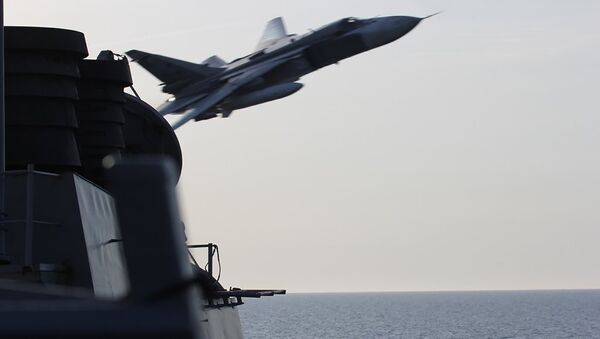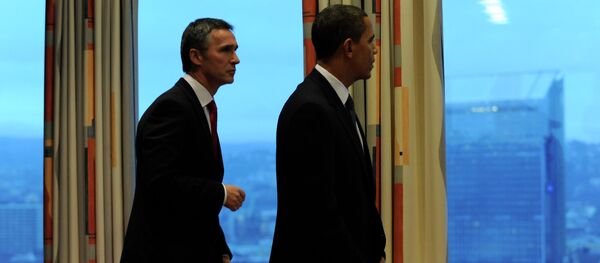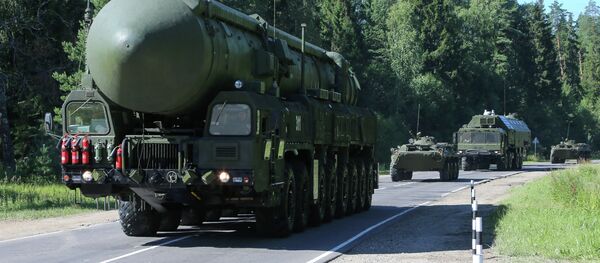The 'Advancing American Security' conference, hosted by the Charles Koch Institute, was covered by The American Conservative editorial assistant Caroline Dorminey. The conference's overarching theme, she explained, seemed to be centered on the question of whether "America [is] stuck in the Cold War or headed into a new one."
Speaking at the conference, neo-realist scholar John Mearsheimer, renowned among scholars of foreign policy for his theory of 'offensive realism', recalled that the US's basic foreign policy imperative since the conclusion of the Cold War has been "one of liberal hegemony," which has two dimensions.
"The first is that we're bent on militarily dominating the entire globe –there's no place on the planet that doesn't matter to the indispensable nation, we care about every nook and cranny on the planet and we're interested in being militarily dominant here, there, and everywhere. That's the first dimension. The second dimension is we're deeply committed to transforming the world –we're deeply committed to making everybody look like us."
For her part, Center for Strategic & International Studies analyst Kathleen Hicks argued that US grand strategy hasn't actually undergone any dramatic shift since the end of the Cold War, and has essentially been the same since 1945, when the US's interwar isolationist tendencies yielded to aspirations for global hegemony.
With much of the conference dedicated to US-Russia relations, Dorminey explained that while "it's possible that the panelists are stuck in a Cold War mentality," it's "more probable…that the preoccupation with the Soviet Union and modern-day Russia stems from the fact that Russia has remained the only country capable of posing a significant threat to America's position of power."
Summarizing the arguments made at the conference, Dorminey recalled that Mearsheimer and Hicks "offered broad policy suggestions for diffusing tensions with Russia in order to avoid a 21st century great-power war."
The most important idea presented, she noted, was the perceived need for Washington to "slowly withdraw from NATO and turn it over to Europe. Both panelists said that contemplating the inclusion of Georgia and Ukraine [in the alliance] was a mistake that resulted in Russian sensitivity to American overreach."
Ultimately, paraphrasing Mearsheimer, Dorminey warned that "without a strategic rethink in US-Russian relations…Russian paranoia and sense of vulnerability could ignite conflict. When asked about the biggest foreign policy mistake of the last 25 years, Mearsheimer first said Iraq, but then added the crisis in Ukraine and the resulting destabilization of US-Russian relations."
"If you take a country like Russia, that has a sense of vulnerability, and you push them towards the edge, you get in their face, you're asking for trouble," Mearsheimer concluded.






